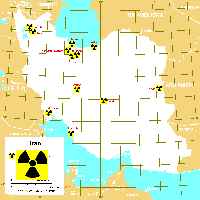US reaps mutual benefit of aid to Israel
http://www.israel21c.org/bin/en.jsp?enDispWho=Views%5El277&enPage=BlankPage&enDisplay=view&enDispWhat=object&enVersion=0&enZone=Views
US reaps mutual benefit of aid to Israel By Mark Wagman December 24, 2006
Mark Wagman is chairman of the Jewish Community Relations Committee of the Jewish Federation of Delaware.
A recent letter to the editor of the Wilmington News Journal (Delaware) questions what America gets for helping Israel. The writer poses this question out of hostility toward Israel or, perhaps, opposition to foreign aid in general.
But even among the majority of Americans who support aid to Israel, many do not appreciate just how close the strategic relationship is between the United States and its democratic ally, and how greatly both countries benefit from that relationship.
The US and Israel cooperate extensively on defense, intelligence and economic matters. By doing so, they advance their common interests of promoting freedom, fighting extremism, and seeking peace and prosperity.
Nearly 90 percent of US aid to Israel is military. Israel's military not only defends its citizens against enemy attacks, but also serves as a powerful presence in the region to deter terrorism and aggression.
Israel's current adversaries are Hamas and Hizbullah - terrorist organizations that wish to destroy it. These groups are funded and armed by Syria and Iran, regimes that are vehemently anti-Western and anti-American. Israel's military strength keeps these extremist forces in check in the eastern Mediterranean, without the need for a single American soldier. This situation contrasts with the Gulf region, where the US has had to send troops because there is no equivalent to Israel to provide stability.
Much of the money spent on Israel directly benefits the US, with 74% of Israel's military aid being used to buy US goods.
Joint programs with Israel's high tech military industry have led to advanced weapons systems, including the Arrow ballistic missile defense system. This system is the only one in operation that has consistently succeeded in shooting down missiles at high altitudes and speeds. The development cost has been shared equally by the US.and Israel. The manufacture is a joint venture of American and Israeli aerospace industries.
US troops use several Israeli technologies, including unmanned aerial vehicles, decoys to confuse enemy radar, and reactive armor on Bradley tanks to repel enemy fire. The US and Israel coordinate strategies for combating terrorism and weapons proliferation. They share highly sensitive, often real-time, intelligence.
Israel is arguably the world's leading expert in collecting intelligence on terrorist groups and in counter-terrorism. It provides intelligence and know-how to the US American satellites provide timely intelligence on missile launches to Israel.
Partly helped by US economic aid, Israel's economy has been growing and is now essentially self-sufficient. Israel initiated a reduction of US economic assistance in 1998 from $1.2 billion to a complete phase-out in 2008.
Over the same 10 years, military aid has gradually increased from $1.8 billion to $2.4 billion, following a 12-year period when there were no increases. This outlay represents one-tenth of 1% of the US budget.
Israel has many pressing needs beyond its budget for which it does not seek US aid. Building of transportation infrastructure, as well as absorption of immigrants, for example, is made possible by private contributions and investment grade bonds. Following the devastation from 4,000 Hizbullah rockets targeting Jewish and Arab civilians this summer, Jewish philanthropies raised $350 million in emergency funding for reconstruction.
Economic cooperation between the US and Israel has increased over the years and now brings important mutual benefits. In 2005 there was $26 billion in trade between the two countries, including $33 million of exports from Delaware.
The US and many states have cooperative agreements with Israel to promote joint research, industrial partnerships and free trade. Microsoft, Cisco, Intel and Motorola have located major facilities in Israel.
The US also uses economic agreements to promote peace. Qualified Industrial Zones (QIZ) have been established by trilateral agreements between the US, Israel, Egypt and Jordan.
In these zones, products containing both Israeli and Arab content are manufactured and exported tariff-free to the US Another program promotes cooperation between Israeli, Arab and American scientists.
Imagine the benefits to the entire region if the Palestinians and other Arab governments followed the lead of Egypt and Jordan in making peace with Israel. In addition to the many bilateral benefits, US-Israel cooperation provides incentives for regional peace.
(Originally appeared in edited form in the Wilmington News Journal)

































0 Comments:
Post a Comment
<< Home